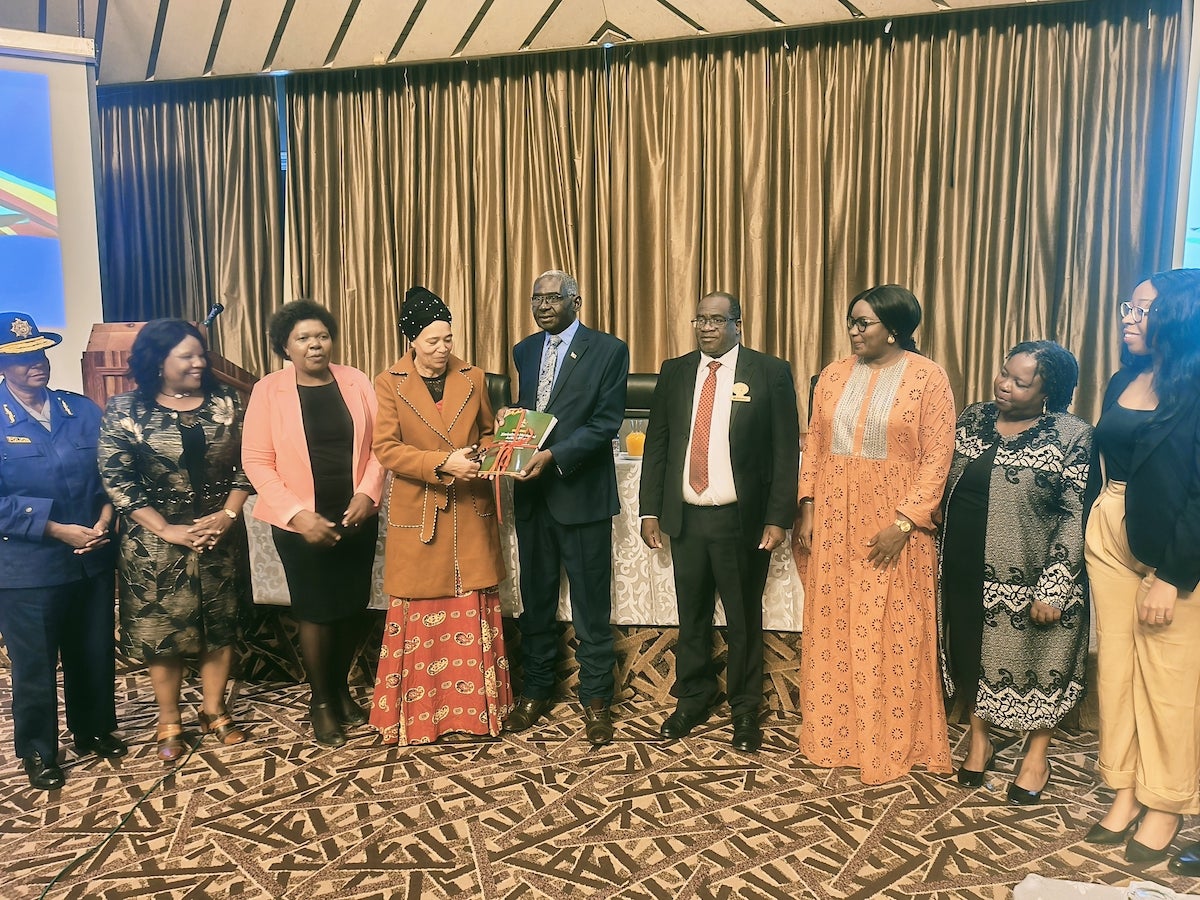Enhancing Women Peace and Security: Zimbabwe’s National Action Plan on Resolution 1325 Launched
Date:

National Steering Committee Unveiling NAP 1325 Action Plan to stakeholders and media.
Zimbabwe officially launched its National Action Plan on Women, Peace, and Security, aligning with UN Resolution 1325. The journey began in October 2000 when the United Nations Security Council adopted Resolution 1325. This resolution, along with nine others, forms the backbone of the UN’s programme on women, peace, and security, advocating for gender equality and women’s inclusion in political processes. The launch took place in Harare on May 3rd, 2024.
On the Launch, Deputy Minister of Women Affairs, Community, Small and Medium Enterprises Development, Jennifer Mhlanga, emphasized the significance of this launch in advancing gender equality, women’s empowerment, and sustainable peace. She described the National Action Plan as a comprehensive framework outlining the country’s goals, strategies, and actions to promote gender equality and women’s empowerment within the context of peace and security.
The Deputy Minister of Defense, L. Mayhlome, highlighted the Action Plan’s focus on enhancing women’s participation and leadership in decision-making related to peace and security. He underscored the plan’s commitment to preventing and addressing gender-based violence, strengthening legal frameworks, improving access to justice, and providing comprehensive support services for survivors.
UN Women Country Representative, Fatau Lo, expressed delight in participating at the launch and reiterated UN Women’s commitment to promoting women’s empowerment and active participation in leadership and peace and security processes.
Despite not experiencing any outright armed conflict since independence in 1980, Zimbabwe faces its share of challenges. Episodes of gender-based violence, including sexual harassment, domestic violence, child marriage, rape, and sexual assault, undermine women’s peace and security. Cultural norms continue to be a barrier to women’s elevation to decision-making positions, and women are still poorly represented in all decision-making bodies.
This initiative comes at a pivotal moment, with eight Southern African Development Community (SADC) member states at various stages of implementing and adopting the resolution to empower and include women in governance. This represents a significant stride toward achieving gender equality in Zimbabwe.
With support from UN Women, the development process of the Action Plan in Zimbabwe was co-led by the Ministry of Women Affairs, Community, Small and Medium Enterprises (MWACSMED) and Ministry of Defence. In December 2021, a consultative process commenced, involving natioal stakeholders, including the Zimbabwe Gender Commission, National Peace and Reconciliation Commission, and Women’s Coalition of Zimbabwe (WCOZ).